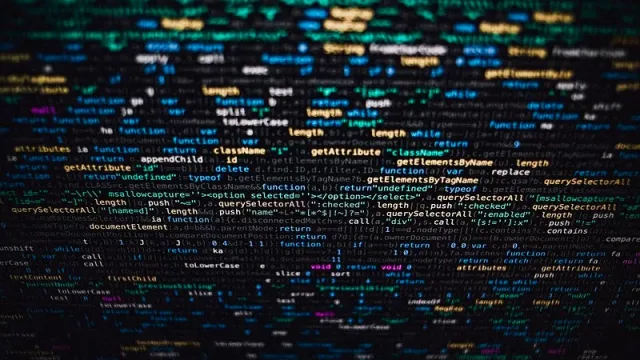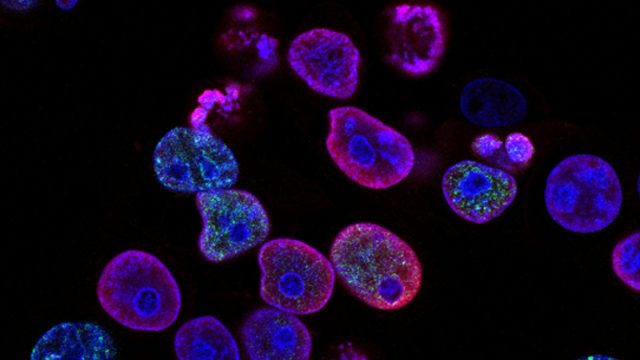Title: Does Science Diplomacy Need a New Purpose in the Populist Era?
Science diplomacy is an emblematic example of a wider movement; the purview of diplomatic practice has expanded beyond politics, now encompassing diverse arenas from economics to environmental regulation. Though science diplomacy possesses weaknesses as well as strengths, it is increasingly regarded as an important policy tool by governments and is the subject of a growing research literature. Advancements in the realms of global development, governance, and scientific cooperation provide significant opportunities for the further evolution, diversification, and extension of science diplomacy applications. At the same time, science diplomacy faces a number of threats – originating in populist movements and protectionist government policies – that undermine its future viability as a diplomatic instrument. If science diplomacy is to survive and develop further, it must accord scientists a leadership role in their efforts to protect scientific values and to advance the application of science to global problems.
The academic and political interest in science and technology arose after scientists had already been involved in international relations endeavors for decades. The notion of science diplomacy has been used in policy documents and scholarly writings since Joseph Nye introduced the notion of “soft power” in 1990 – the idea that states can exert power through cultural assets, including their science systems. However, it is only in the first and second decades of the twenty-first century that science diplomacy has become an accepted facet of policy documents put forth by science academies and national governments alike.
As a result of such institutionalization, the number of practices, policy tools, and instruments that fall under the label of science diplomacy continues to grow. Certain historical endeavors, such as the joint space explorations conducted by the United States and the USSR in the 1960s and 1970s, have been classified retrospectively as examples of science diplomacy. Moreover, several countries have begun to use the concept of science diplomacy to describe previously established international research and development policies, such as support for scientific exchange programs or the creation of posts for science attachés in embassies. Science, as such, is becoming an object of strategic communication and governmental public relations. The EU, one of the largest funding authorities for scientific endeavors in the world, has also embraced this concept through its policy declarations in the 2016 “Open Innovation, Open Science and Open to the World” strategy.
Thus, the interest in and practice of science diplomacy has expanded considerably over the past few years as it has gained a more prominent role in policy discourses and academic research. This can be related to its perceived advantages within the modern diplomatic toolkit. The major strength associated with science diplomacy revolves around the role of scientists, whose engagement in international cooperation is regarded as a bridge for building trust between states and ameliorating inter-state disputes or tensions. Often, this belief is accompanied by an idealistic discourse of scientists all speaking the “same language,” able to bring people together, even in polarized conflict zones. As such, science diplomacy is often portrayed as a tool for peace-building and reconciliation, though it is not always able to perform these functions. Success stories, such as the involvement of nuclear physicists in the nuclear deal with Iran and the P5+1 and the EU, demonstrate how science has contributed to the mitigation of international conflicts and tensions.
However, science diplomacy also possesses certain weaknesses that arise from its vague and multi-faceted nature. Scientists tend to be skeptical of governments that may want to ‘use’ them in pursuing a strict agenda. Conversely, foreign governments may react in an equally wary and reluctant manner when cooperation in science is suddenly framed as a foreign policy, or diplomatic, initiative. On the other side of the spectrum, most governments lack a clear strategy regarding science diplomacy. For some, it seems to function as a mere catchword used to label their policy of nation-branding and self-promotion. Science diplomacy is often flawed in implementation and hindered by political dynamics. Currently, supporters and investigators of science diplomacy are mainly located within policy communities. As such, the primary drivers of science diplomacy are policy makers in states or intergovernmental organizations, calling into question the extent to which scientists are actually involved and actively promote policy agendas.
The current era of populism poses new threats to the way science is being conducted at the moment – in an open, international and collaborative atmosphere – and to science diplomacy more specifically. Some governments actively present ‘alternative facts’ to counter ‘scientific facts’ or limit access to scientific data that do not support governmental preferences. Populism and nationalism is often accompanied by protectionism, which stands in opposition to the ideals of the scientific community. The risk of protectionism for science is that governments will increasingly attempt to keep scientific findings within their domestic boundaries. In undermining the “open to the world” vision of science, such developments endanger not only the endeavor of scientific inquiry, but also the implementation of science diplomacy.
Moreover, certain governments adopt policy positions that inhibit the practice of science in diplomacy, which allows scientists to provide advice to governments and thus become involved in evidence-based policy-making. In the United States, science in diplomacy is exemplified by the President’s Council of Advisors on Science and Technology (PCAST), which was originally created by President Roosevelt in 1933 as the Science Advisory Board. Yet in the Trump administration, the PCAST has neither held any formal meetings nor published any official documents. The inactivity of the PCAST demonstrates the reduced level of priority given to scientific concerns and phenomena, including climate change, by the current administration. In fact, many scientists in government have resigned in response to governmental policy stances. In his resignation letter, one such scientist, Professor Kammen, summarized the motivations that drove him and many of his colleagues to withdraw: “It was sadly easy to step down because I view what the President is saying as inconsistent with what’s in the best interests of the country and my mandate as science envoy.”
Additionally, the Trump administration has taken several actions that have undercut the practice of diplomacy for science, which encompasses diplomatic initiatives undertaken for the sake of scientific advancement. UNESCO membership has been withdrawn, and the Iran nuclear deal – arguably one of the biggest diplomatic breakthroughs achieved in recent years and one made possible by physicists – has been heavily criticized. Today, top-down support for science diplomacy in the United States seems scarce.
Nevertheless, opportunities for the further development of science diplomacy still exist. The most important opportunity depends upon a growing awareness of the scientific considerations inherent to global problems. Many of today’s most pressing global challenges – from climate change to energy security – possess a scientific component. As a result, global governance must be linked with scientific evidence. On September 25, 2015, the United Nations adopted the Sustainable Development Goals, a set of ambitious objectives that aim to end poverty, protect the planet, and ensure prosperity for all. Each goal contains specific targets to be achieved over the next 15 years. The enactment of the new sustainable development agenda will rely upon the engagement of different stakeholders: governments, private sectors, civil societies, and scientific communities. Science diplomacy may be the tool required to realize these goals.
Another opportunity for the application of science diplomacy lies in the increasingly networked organization of governance. In 2013, for example, France appointed a “special representative of France to international negotiations on the information society and the digital economy.” More recently, Denmark has taken unprecedented action in delegating a direct digital ambassador to members of a stateless private sector: Google, Apple, Facebook, and Amazon (GAFA). Such actors represent a world without borders, one in which each enterprise generates as much capital as an average country. The active cooperation of these stakeholders with the security services has helped in the monitoring and mitigation of radicalization and cybercrime. However, these companies can also disclose personal information for unwanted purposes, as the recent Cambridge Analytica scandal has shown. Such developments undoubtedly constitute a turning point for practices in science diplomacy.
Finally, the potential for scientists to become more involved in science diplomacy constitutes a significant opportunity for the field. The growing interconnectedness of a world linked by applications in information and communications technology (ICT) allows scientists to deepen their global networks. Additionally, some political actors appear to take the values of science seriously as well. The EU, for example, not only supports scientific cooperation across borders, but also backs research projects that study science diplomacy, a commitment that can only strengthen the ‘ownership’ of science diplomacy by the scientific community.
Such ownership represents a development in science diplomacy that is both desirable and necessary. We are heading towards a knowledge society, one that may include global knowledge and data wars. For this reason, science diplomacy should serve as a tool and topic of concern for governments as well as the scientific community. Members of this community must realize that they have a major role to play in promoting international cooperation to use science and technology in addressing global issues. Scientists and their professional organizations should spearhead the formulation of strategies to counter anti-science actions taken by populist movements, maximize the contribution of science to the Sustainable Development Goals, and make use of scientific practices and exchanges as peace-building tools in international conflicts. If science diplomacy is to play a more robust role in fostering better international relations, it is time that scientists take full control of the concept and dedicate their work to the benefit of humanity.
This paper is written as part of EL-CSID, a Horizon 2020 research project on science and cultural diplomacy, funded by the European Commission under grant agreement 693799. For a more elaborate version of this article, please refer to “Science diplomacy in search of a purpose in the populist era” on the EL-CSID webpage.
Luk Van Langenhove is the Academic Director and Scientific Coordinator of the EL-CSID project at the Institute for European Studies, Vrije Universiteit Brussel, and Senior Advisor European Strategy at the University of Warwick. Previously, he was the Director at the United Nations University Institute on Comparative Regional Integration Studies (UNU-CRIS) in Bruges and the Representative of the UNU Rector at UNESCO in Paris. Dr. Van Langenhove is a graduate of the Vrije Universiteit Brussel and received his Ph.D. in Psychology from the same university. He has published widely on regional integration, social sciences theory, positioning theory and psychology.
. . .
Elke Boers is a researcher at the United Nations University Institute on Comparative Regional Integration Studies (UNU-CRIS), where she works on the Horizon 2020 project European Leadership in Cultural, Science and Innovation Diplomacy (EL-CSID). She holds a Master’s degree in East European Studies and Slavic Languages from the University of Leuven and a MSc in International Relations and Diplomacy at the University of Antwerp. During these studies, she completed an internship at the UNESCO headquarters in Paris at the Science Policy and Partnership Building Sector. She dedicated her thesis subject to national and international approaches to Science Diplomacy.
More News

This article examines the EU’s cyber diplomacy in Moldova’s parliamentary elections from September 28, 2025, which marked a new chapter in the bloc’s cyber diplomacy. Drawing on analysis of Russian…

Export controls on AI components have become central tools in great-power technology competition, though their full potential has yet to be realized. To maintain a competitive position in…

The Trump administration should prioritize biotechnology as a strategic asset for the United States using the military strategy framework of “ends, ways, and means” because biotechnology supports critical national objectives…